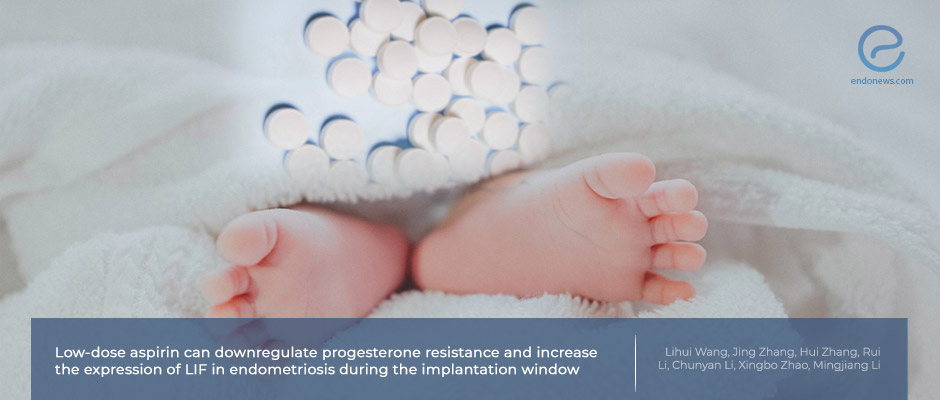Low-Dose Aspirin as a Potential Treatment for Endometriosis-Related Infertility
Jun 24, 2021
Low-dose aspirin may be a potential treatment for endometriosis-related infertility, rat study suggests.
Key Points
Highlights:
- Low-dose aspirin could downregulate progesterone resistance and increase the expression of leukemia inhibitory factor (LIF) during the implantation window.
- This could improve endometrial receptivity and enhance the pregnancy rate in endometriosis patients.
Importance:
- Low-dose aspirin treatment could be a promising approach to treat endometriosis-associated infertility.
What's done here:
- Researchers analyzed the expression levels of progesterone receptors and the LIF receptor in the eutopic endometrium and serum of normal rats, rats with endometriosis, and rats with endometriosis treated with low-dose aspirin.
Key results:
- The expressions of the progesterone receptors, both PRA and PRB, were significantly increased in the eutopic endometrium of endometriosis rats after low-dose aspirin treatment.
- The level of PRB mRNA was also increased following low-dose aspirin treatment.
- Low-dose aspirin treatment seemed to decrease the ratio of PRA/PRB mRNA in the eutopic endometrium of endometriosis rats.
- The levels of LIF were higher in the eutopic endometrium and serum of endometriosis rats treated with low-dose aspirin compared to untreated endometriosis rats.
- The expression of the LIF receptor was not different between groups.
Limitations:
- This is a study conducted in an animal model of endometriosis and more research is needed to confirm any potential effect of low-dose aspirin on infertility in patients with endometriosis.
Lay Summary
Treatment with low-dose aspirin could downregulate progesterone resistance and increase the expression of leukemia inhibitory factor (LIF) during the implantation window, according to a study that used a rat model of endometriosis. This, in turn, could improve endometrial receptivity and increase the pregnancy rate.
These findings are important because they suggest that this approach could also be used to treat infertility in women with endometriosis.
It is thought that 30 to 50% of women with endometriosis are infertile or have subfertility. Researchers think that this could be, at least in part, due to chronic inflammation and impaired endometrial receptivity. Some studies have shown that low-dose aspirin could improve endometrial receptivity.
In order to further assess the effect of low-dose aspirin on endometrial receptivity, a team of researchers in China used a rat model of endometriosis.
Progesterone and its receptor play a key role in the regulation of the endometrial cycle and mice that do not express progesterone receptor are infertile. Similarly, LIF is essential for the implantation of the embryo into the uterus. It is most highly expressed during the implantation period when the uterus is receptive for a fertilized egg to implant and is reduced in endometriosis.
The researchers assessed the expression of the two progesterone receptors (PRA and PRB) and the LIF receptor in the eutopic endometrium and blood of normal rats, endometriosis rats, and endometriosis rats that they treated with low-dose aspirin. They found that the expressions of PRA and PRB were significantly higher in the eutopic endometrium of endometriosis rats following low-dose aspirin treatment. The level of PRB mRNA was also higher and the PRA/PRB mRNA ratio was lower. The levels of LIF were also higher in the eutopic endometrium as well as in the blood of endometriosis rats treated with low-dose aspirin, compared to endometriosis rats that were not treated. However, the expression level of the LIF receptor was not statistically different between normal rats, untreated endometriosis rats, and endometriosis rats treated with low-dose aspirin.
“Low-dose aspirin treatment could downregulate progesterone resistance and increase the expression of LIF of endometriosis rats during the implantation window,” the researchers wrote. They added that this could improve endometrial receptivity and enhance the pregnancy rate in endometriosis.
Research Source: https://pubmed.ncbi.nlm.nih.gov/33974468/
aspirin pregnancy progesterone receptor infertility rat model

